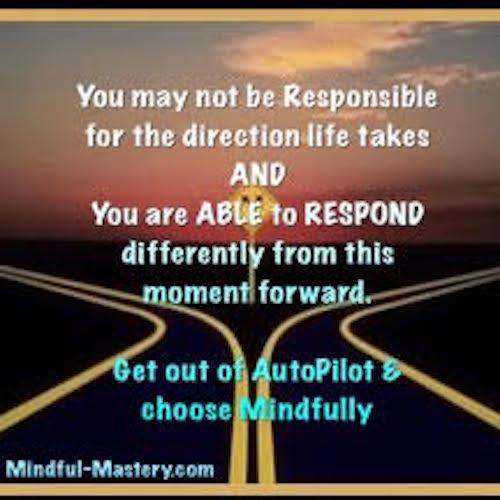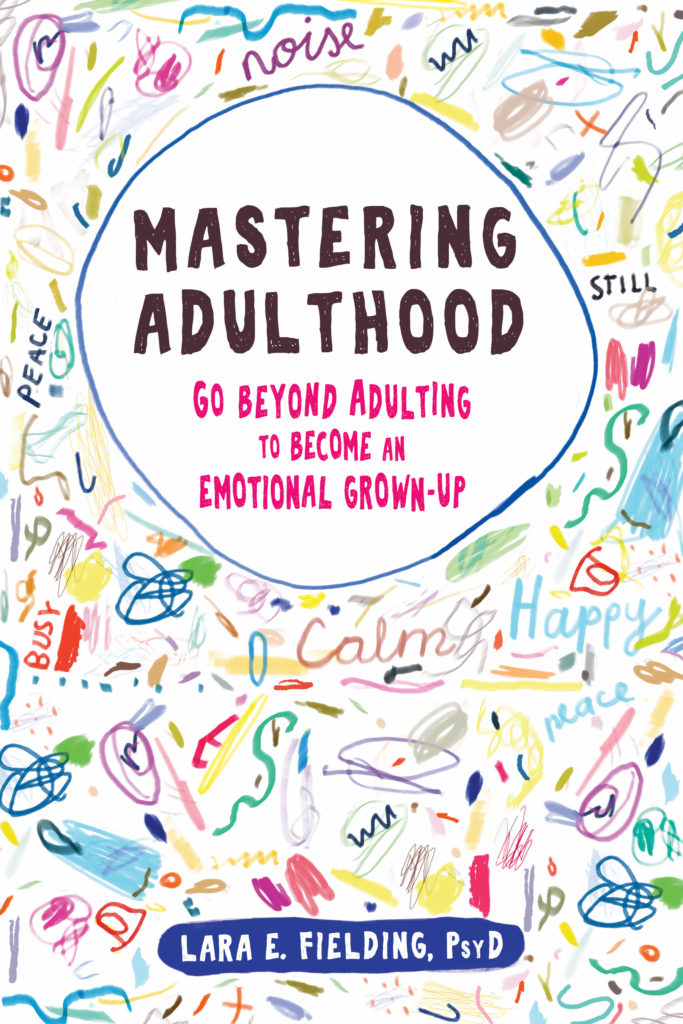In one sense, we are not really responsible for our mental states. Humans can easily get caught in evolutionarily hardwired mind traps. These are the auto-pilot repertoires of thinking and behaving, which we just assume are ‘the kind of person I am.” These traps are extraordinarily difficult for us to see, because they are just what we do, and the ways we think. But these are the very traps that get us stuck and unhappy with our lives.
We are all prone to this automaticity because the mind-body system is hardwired for habit formation. Thinking and behavior habits get formed over time in two ways:
1. The action or mode of thinking is rewarding in that it either increases pleasure or reduces discomfort.
2. The action or mode of thinking is practiced repeatedly.
This process is simply a law of nature. There is nothing you can do to change it!
So what does this mean for us? Does this mean we should throw our hands in the air on the roller coaster of life and passively scream “weeeeee!!!” as we accept our fate? Just suffer through the ride of push and pull between clinging to pleasure and pushing away pain? Or should we fight our nature? Discipline the beast of our animal nature?
The answer is always…..NEITHER
……and BOTH
and You ARE Response-Able
You may not be able to change the laws of nature. But you can learn to more skillfully work within them. Once we accept the fact that our hardwiring predisposes us to mindless auto-pilot habits, we can begin to work more effectively within the system. This awareness is the first step in taking personal responsibility for the fact that we are able to respond differently to the habits we have developed.
Who’s to Blame?
Any discussion of personal responsibility, as pertains to our health and well-being, is laden with landmines and potential distortion. Oftentimes people perceive the premise of “taking responsibility” as blaming the person in question. So I would like to address that concern right here.
The first thing I would like to propose is that there is no one to blame. To blame means “to find fault” and is usually associated with the responsible party. “Ah!” You might be thinking, “How can you say that I cannot blame the person, or situation, or experience that happened or is happening to me?” This event, person, or situation has ‘caused’ my suffering!” And your reaction would be understandable. There are indeed many injustices that I wish were not true. The examples of abuse, intolerance, genocide, cultural assumptions, racism, and economic inequality are endless. These are facts as the world exists right now, or has in the past. And may we all work towards their eradication.
The Blame Problem
Here is the problem with holding on to blame: if we get stuck in the story of blame who becomes the victim? Who has the power when we blame someone or something outside ourselves? When we hold on to this story, it does not serve us. Blame is simply not helpful, and often harmful, in achieving wellbeing and happiness.
It is a bit like what is called the “corpus delicti” problem in legal texts. The law states, “if there is no dead body, there cannot have been a crime.” Similarly, when we cling to the blame story, (i.e “I have been wronged by someone or something”) by definition the blamer becomes the victim. So, by extension the mind tells us, “If I am not a victim, there was no crime.” This belief feels like we are letting someone off the hook!
But who is really on the hook here? Who is stuck as the symbolic dead body when we hold on to blame? In short, holding onto blame, holding someone or something outside ourselves on the hook, only serves to keep us on the hook with them.
“BUT” you might say, “My life is a mess because my parents…..” did whatever they did to get those passengers on your vehicle, and thus leading to where you are now. Or “The situation that I am in is unfair!” Yes, these injustices may also be true, facts. Again, I am not saying that injustices do not, or have not happened.
What is meant here is that your parents acted according to the same laws of nature, noted above combined with their own past experience, and how they learned to cope. So, we might also blame their parents and experiences. But then whom do we blame for their parents’ behavior? Or you might jump right to “Then I must be to blame!” The mind just wants to hold someone accountable! This blame can go on forever, and keep us stuck!
Would you Rather be Right or Effective?
The question is, would you rather be right, or be effective? You can certainly continue to hold on to the blame battle. Or you can begin to let go of that story, and accept that the nature of all humans leads to things as they are. This does not mean we have to like, or approve, or desire, the difficult experiences we have had. We do however have to accept the world on the world’s terms in order to begin to cope the most effectively possible. And this, I am sorry to say, means taking response-ability (the ability to respond differently) for each of our predicaments. This means learning to recognize what your auto-pilot programing (learned from repeated practice that was rewarded) compels you to do, and choosing to respond more effectively.
As the Buddhists say, “Everything is exactly as it should be.” That is, everything is exactly as it should be according to the way mind-body vehicles operate, in the context of certain road conditions. With this view, if there is something to blame, it is simply the laws of nature (Damn them!).
As always, if you enjoyed this blog (or the series), I hope you will ‘like’, comment, or share the love! Thanks! And may you BE-WELL! If you would like to learn more about auto-pilot habits and how to identify and change them, sign up for the Mindful-Mastery Skills Weekly here. Or follow me on Facebook, Twitter, or Instagram!



Great blog today!
Thanks Robin! So glad you liked it! Lara